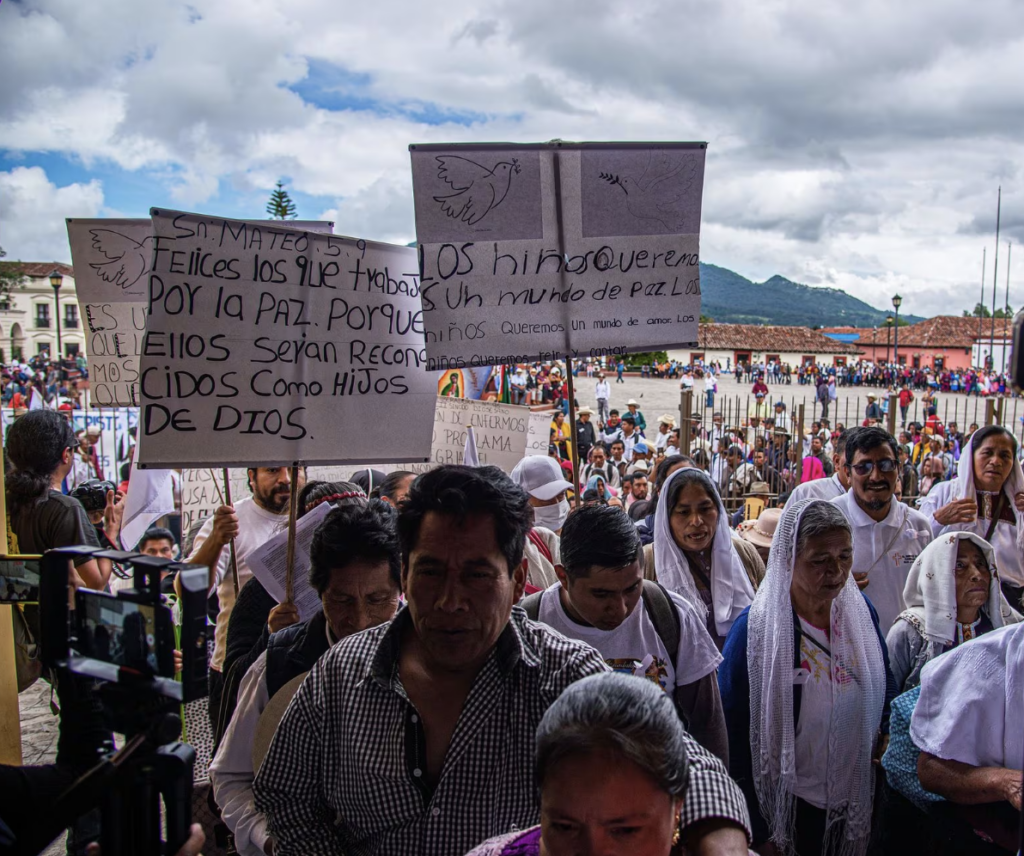 02/05/13 – The year 2012 marked the end of the six-year term of President Felipe Calderón (2006-2012), who was both lauded for his administration’s unprecedented assault on organized crime groups and criticized for the loss of human life that accompanied this fight. From the beginning of his presidency, President Calderón made security a primary focus of his administration by doubling national security budgets and deploying tens of thousands of federal forces to the states most impacted by violence among drug trafficking organizations.
02/05/13 – The year 2012 marked the end of the six-year term of President Felipe Calderón (2006-2012), who was both lauded for his administration’s unprecedented assault on organized crime groups and criticized for the loss of human life that accompanied this fight. From the beginning of his presidency, President Calderón made security a primary focus of his administration by doubling national security budgets and deploying tens of thousands of federal forces to the states most impacted by violence among drug trafficking organizations.
However, under President Calderón, the number of overall homicides annually increased more than two and a half times from 10,452 in 2006 to 27,213 in 2011, according to figures from the National Institute of Statistics and Geography (Instituto Nacional de Estadística y Geografía, INEGI). During the first five full years of Calderón’s term—from 2007 through 2011—INEGI reported 95,646 people killed, an average of 19,129 per year, or more than 50 people per day. By these measures, there was a 24% average annual increase in overall homicides during the Calderón administration. Calculating that overall homicides appear to have dropped by roughly 5-10% in 2012, our estimate is that the total number of homicides during the Calderón administration was likely around 120,000 to 125,000 people killed, depending on whether INEGI or the National System of Public Security (Sistema Nacional de Seguridad Pública, SNSP) data are used.
In July 2012, Mexico elected a new president, Enrique Peña Nieto, who took office on December 1, restoring to power the Institutional Revolutionary Party (Partido Revolucionario Institucional, PRI), which governed Mexico without interruption for over seven decades until it lost the presidency in 2000. For better security coordination among government agencies, President Peña Nieto has instructed the Interior Ministry (Secretaría de Gobernación, SEGOB) to oversee the creation of a new network, the System of Coordination and Cooperation (Sistema de Coordinación y Cooperación). (See below for more information on Peña Nieto’s new plan).
In January 2012, Peña Nieto gave a clear message regarding the direction that his presidency will follow on security policy when he unveiled the “Pact for Mexico” (Pacto por México), an agreement signed along with representatives from Mexico’s major political parties. The Pact—a 34-page itemized list of policies and reforms—set forth proposals in several areas related to security and justice issues, particularly focusing on reducing homicides, kidnapping, and extortion. The Pact outlined steps to establish a 10,000-person National Gendarmerie and a unified police command system at the state-level. Above all, from the outset of his term, Peña Nieto declared that his security strategy would abandon the Calderón administration’s heavy dependence on military deployments and its focus on dismantling organized crime groups.
This information is part of “Drug Violence in Mexico: Data and Analysis through 2012,” the fourth of a series of reports that the Trans-Border Institute’s Justice in Mexico Project has put together each year since 2010 to compile the latest available data and analysis to evaluate these challenges. The report was authored by Justice in Mexico Project Associate Cory Molzahn, TBI’s Security and Rule of Law Program Coordinator Octavio Rodríguez Ferreira and TBI’s Director David A. Shirk. This report was made possible thanks to the support of the John D. and Catherine T. MacArthur Foundation, as well as the collaboration of the Harry F. Guggenheim Foundation.





Pingback: New Report: “Drug Violence in Mexico: Data and Analysis through 2012″ « Mexico Institute
Pingback: New Justice in Mexico Report: “DRUG VIOLENCE IN MEXICO: DATA AND ANALYSIS THROUGH 2012″ | Frontera List
Pingback: The Justice in Mexico Project releases its report “Drug Violence in Mexico: Data and Analysis through 2012″ « Ark-La-Tex 9-12 Project
Pingback: The Mexican Undead: Toward a New History of the “Drug War” Killing Fields | Mexican Drug Cartels, Violence and Drug Trafficking across the US-Mexico Border
Pingback: Hiding Mexico’s Dead: drug war deaths go underreported in the U.S. media | Compañero Manuel
Pingback: Hiding Mexico’s Dead: drug war deaths go under-reported in the US media | dorset chiapas solidarity